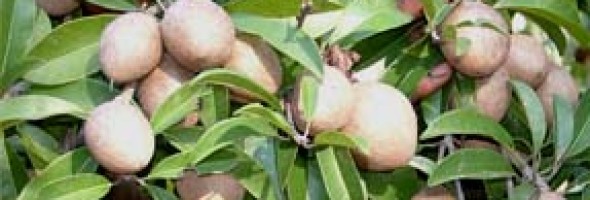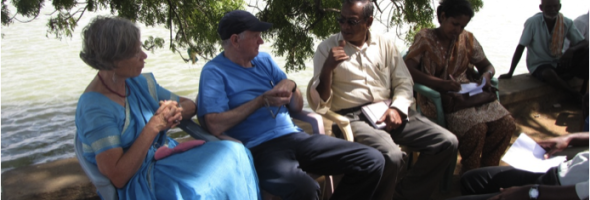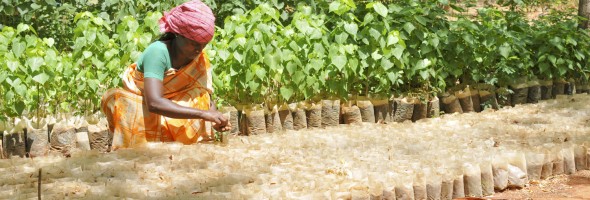Mrs Nagalakshmi’s Sapota Trees
Posted by: admin
Tags:
community power, futures, income, Saplings, Sapota, SCAD, social change and development, Sorghum, South India, sustainable living, Tamil Nadu, Trees
Posted date:
April 23, 2012 |
No comment

April 23, 2012
Mrs Nagalakshmi set aside one acre of her five acre plot in 2007 to grow fruit trees and, with the help of SCAD's tree planting staff, she planted trees for the next three years. Initially she planted 50 Sapota trees and has subsequently added a further 55 trees comprising of Jamun, Tamarind and Guava. The Sapota trees have just started to fruit and she has sold the crop for £200 (RS 15,000). To supplement her income before the fruit trees started to bear fruit, SCAD staff convinced her to plant Sorghum as an inter crop and provided her with some subsidised seed. Sorghum is easy to grow and can survive...
Read More
Murray and Janet visit SCAD
Posted by: admin
Tags:
Adaptation, Change, Development, empowering communities, Murray and Janet Frankland, Non-governmental organisation, Ooranie, Salt of the Earth, SCADcharity, social change and development, Tamil Nadu, Trees, women
Posted date:
February 13, 2012 |
No comment

February 13, 2012
Murray & Janet Frankland, founders of Salt of the Earth, visit the ‘model village’ Sevalkulam, in the Ottapidaram block to view the new fish culture initiative at the village ooranie (rainwater harvest tank). SCAD have been working with this village for around 20 years and have successfully established: Women’s Self Help Groups, supplementary education, energy management, sports youth groups, vetinary camps, income generating initiatives, health education, micro insurance, nutritional demonstrations, tree plantation, organic kitchen gardens, bio-char trial plots - as a result village...
Read More
Planting trees to protect against climate change
Posted by: admin
Tags:
Adaptation, Change, Climate Change, Development, Green Cover, India, Planting, Saplings, SCADcharity, Social, Tamil Nadu, Trees
Posted date:
December 6, 2011 |
No comment

December 6, 2011
Tuticorin, the region in which SCAD works, receives 678mm of rainfall a year, which is 29% less than the average for the district. The communities who live in Tuticorin are already feeling the effects of drought, soil erosion and water depletion. Monsoon rains matter for crop irrigation and water supply, and people and livestock suffer heavily when the monsoon fails or is delayed. For the future of our communities in India we have started to plan adaptation strategies. To this end we have been planting between 80,000 and 100,000 new indigenous saplings every year since we began working in the community...
Read More
Site Map
© 2011 Social Change and Development (SCAD)
